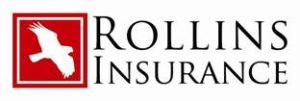 A surety bond is a guarantee with financial implications involving three parties, whereas insurance is a contract between two parties for coverage related to specific losses. Both bonds and insurance protect from losses. It’s better to be bonded and insured than to be unprotected from financial loss. When you are a contractor, it is important to establish your credibility with potential customers. That is why you might see the phrase “bonded and insured” in advertising materials. In this blog, we would like to give you a few suggestions of what it really means to be bonded and insured.
A surety bond is a guarantee with financial implications involving three parties, whereas insurance is a contract between two parties for coverage related to specific losses. Both bonds and insurance protect from losses. It’s better to be bonded and insured than to be unprotected from financial loss. When you are a contractor, it is important to establish your credibility with potential customers. That is why you might see the phrase “bonded and insured” in advertising materials. In this blog, we would like to give you a few suggestions of what it really means to be bonded and insured.
Significant Differences Between Bonds And Insurance
A key difference between bonds and insurance is that insurance protects your business in the event that you are accused of a wrong whereas a surety bond protects your client’s business if you do something wrong. Both provide protection against financial loss. But there are significant differences:
- Insurance – It is a form of risk management that guarantees the losses of the insured will be covered.
- Bonds – This will guarantee that the principal will fulfill or meet the terms of a contract.
Why Contractors Should Consider Getting Insured
Insurance is a critical business expense for every contractor. We’ve all seen the stories in the news about home and business owners – often people just like you – who have lost enormous amounts of money to contractors who did not have the proper insurance coverages, performed shoddy work on construction projects, or were simply flat-out dishonest and ran off with the customer’s money without ever finishing the job. Anyone who works in construction or has hired a contractor recently knows that nearly every construction contractor advertises their business as “bonded and insured.” These are the basic requirements that any trustworthy contractor should fulfill.
What Kind Of Insurance Is Most Appropriate? Let’s Review The Options…
Commercial General Liability Insurance: This type of insurance could protect your business from another person or business’s claims of bodily injury, associated medical costs, and damage to property. Having this kind of coverage is beneficial in several instances:
- Bodily injury: A client trips over your toolbox and fractures their leg. You could be liable for their medical costs; however, your general liability insurance policy could cover those costs, protecting your business.
- Personal injury: One of your employees is out to lunch. He is overheard talking to another employee about one of your clients in an unflattering and false way. The client learns of this discussion and sues for slander. A general liability insurance policy could cover the subsequent claim, up the policy limits, and appoint an attorney to defend you if necessary.
- Property damage and data loss: You are renovating a home office for a client and their desktop is nearby. During the demolition phase, you accidentally drop something on the desktop causing irreparable damage. A general liability insurance policy could cover the claim up to your policy’s limits of liability.
What General Liability Does Not Cover:
- Employee injuries: This is covered by workers’ compensation insurance.
- Vehicle-related injuries: These are covered by auto insurance.
- Punitive damages: These are damages usually awarded for mental anguish and suffering.
- Intentional acts: If an employee destroys property on purpose, the cost is not covered.
Professional Liability Insurance: Professional liability insurance typically covers negligence, copyright infringement, personal injury, and more. Claims covered by a professional liability policy can include damages caused by things you did and/or things that you should have done. Typically, this type of insurance is taken out by professional service providers, like lawyers, real estate professionals, accountants, and medical professionals. Contractors often carry professional liability insurance in addition to general liability. Professional liability insurance is known as error and omission insurance. It covers legal costs when your business is sued for unsatisfactory or incomplete work.
What Is The Purpose Of Getting Bonded?
Being bonded helps create trust between your business and your clients because you are giving them assurances that they will be financially protected from losses they may suffer if you don’t fulfill your contractual obligations to them. It is a guarantee that your contracting business will make good on the work that is expected. Diligent customers usually require a bond before they will decide to work with a contractor.
There are two different general types of bonds:
- Commercial bonds: Commercial bonds are used to protect public institutions like government municipalities. If you bid on a landscaping job to beautify a city park, a commercial bond is required. If anything happens the surety company will cover the damage, and you may have to pay the surety company back.
- Construction bonds: Construction bonds, on the other hand, are typically required by business operations in the construction industry. The 3 most common types of construction bonds are bid bonds, performance bonds, and payment bonds. Other construction bonds that are often required include maintenance bonds, supply bonds, subdivision bonds, and site improvement bonds. Depending on your role in the construction project, you may be required to obtain one of these construction bonds. Know the difference between each and contact your national surety agency to help you get the best rate for your required construction bond.
The Conclusion
Your business may not be required to be bonded and insured by law, but every business can benefit from coverage. Insurance policies and bonds offer advantages that small business owners find outweigh the cost of premiums. Insuring and bonding your business helps show a potential customer that your business is legitimate and trustworthy. Without insurance, if something happens and you are unable to complete the work or shoddy materials undermine your project, your business could be on the line. All insurance policies serve the same purpose: to protect your business from financial damage. With the right combination of bond and insurance products, your business is covered, and your customer’s interests are protected as well.
Contact us (859-781-7283) for more information or get a free quote!
—
 About Rollins Insurance
About Rollins Insurance
Rollins Insurance is an independent insurance agency providing our clients the best prices with the most coverage possible since 2008. We represent multiple A-rated insurance companies to make sure we deliver the most competitive rate packages to our clients in Kentucky and Ohio. We find that most people are under-insured and over-paying when we meet them. We love what we do and our primary business is Personal Auto, Homeowners, and Life and Health insurance. We are a family-owned and managed business that specializes in providing needs-based insurance services.
>> Learn More About Us and Our Staff
